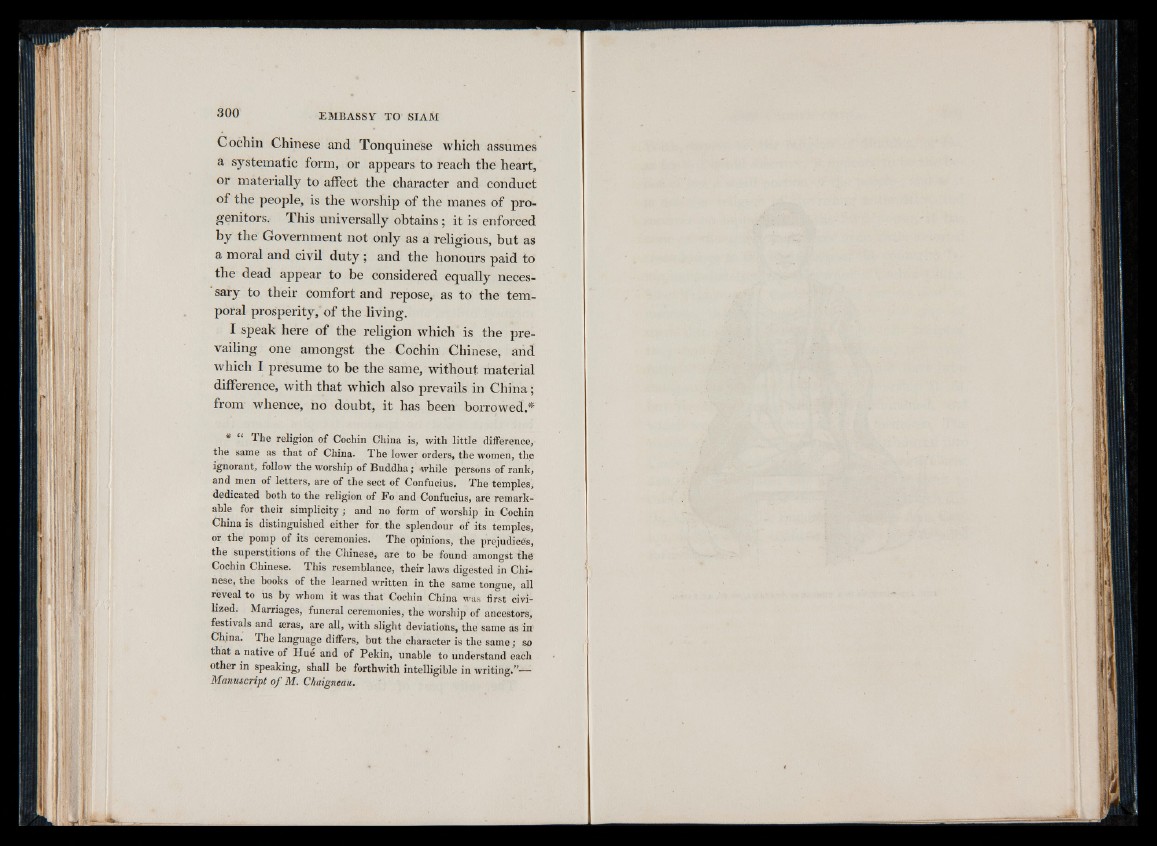
Cochin Chinese and Tonquinese which assumes
a systematic form, or appears to reach the heart,
or materially to affect the character and conduct
of the people, is the worship of the manes of progenitors.
This universally obtains ; it is enforced
by the Government not only as a religious, but as
a moral and civil duty ; and the honours paid to
the dead appear to be considered equally necessary
to their comfort and repose, as to the temporal
prosperity, of the living.
I speak here of the religion which is the prevailing
one amongst the Cochin Chinese, and
which I presume to be the same, without material
difference, with that which also prevails in China ;
from whence, no doubt, it has been borrowed.*
* “ The religion of Cochin China is, with little difference,
the same as that of China. The lower orders, the women, the
ignorant, follow the worship of Buddha ; while persons of rank,
and men of letters, are of the sect of Confucius. The temples,
dedicated both to the religion of Fo and Confucius, are remarkable
for their simplicity ; and no form of worship in Cochin
China is distinguished either for. the splendour of its temples,
or the pomp of its ceremonies. The opinions, the prejudices,
the superstitions of the Chinese, are to be found amongst thé
Cochin Chinese. This resemblance, their laws digested in Chinese,
the books of the learned written in the same tongue, all
reveal to us by whom it was that Cochin China was first civilized.
Marriages, funeral ceremonies, the worship of ancestors,
festivals and æras, are all, with slight deviations, the same as in
China. The language differs, but the character is the same; so
that a native of Hué and of Pekin, unable to understand each
other in speaking, shall be forthwith intelligible in writing.”—
Manuscript o f M, Chaigntau.
81
1